Raising Beef Cattle Is West Virginia Laws Per Acre
Country roads, take us habitation! John Denver may not have actually called West Virginia his dwelling house, simply famous tune has long captured the spirit and beauty of rural life in West Virginia. The West Virginia country seal fifty-fifty features a farmer with an ax, turn and cornstalk.
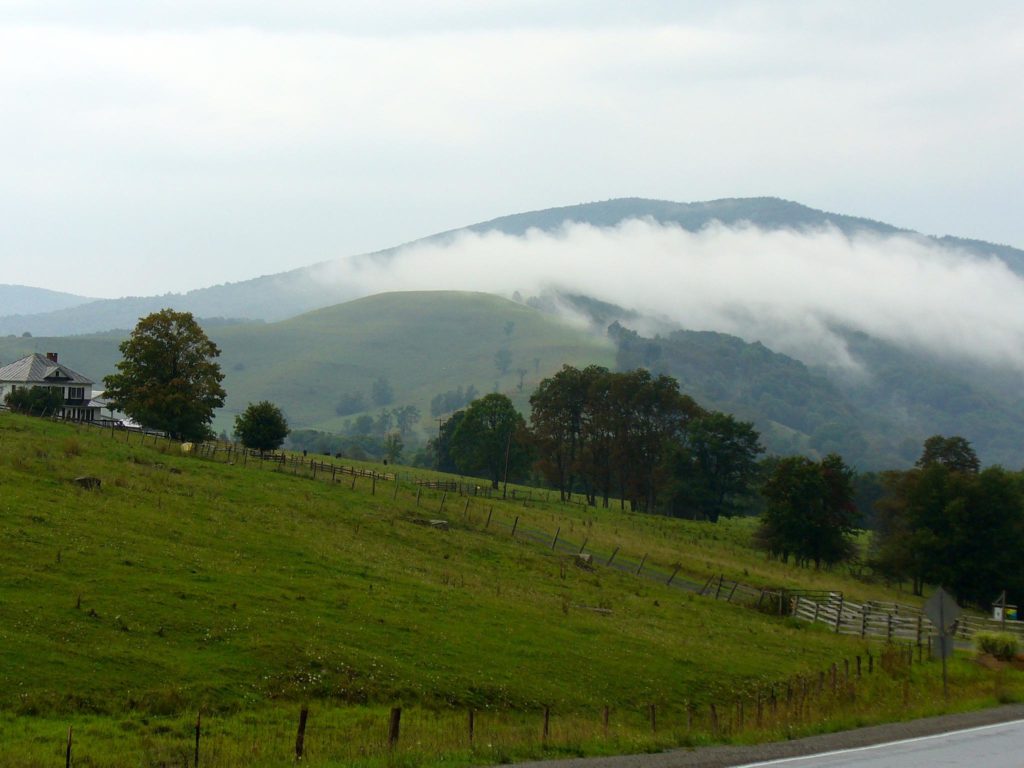
Approximately 95 percent of Due west Virginia farms are family unit-owned, which is the highest rate in the country. Bated from the pocket-size farm-friendly surround, West Virginia is as well a relatively affordable place to outset farming or homesteading. especially if y'all are interested in raising livestock.
If y'all are looking to start a farm or homestead in the mid-Atlantic only are trying to avoid high land costs, the Mountain State may exist a skilful fit for you. Hither's how to start homesteading in West Virginia.
Buying farmland in West Virginia
According to 2019 information from the Usa Section of Agriculture (USDA), the average toll of farm real estate in W Virginia was $2,680 per acre, compared to the national boilerplate of $three,160 that aforementioned year. The average cost per acre for cropland was $three,280 and $2,120 for pasture.
According to the USDA's 2018 Country Agronomics Overview, West Virginia has three.6 million acres of farmland and 23,400 farms. The boilerplate subcontract size is 154 acres.
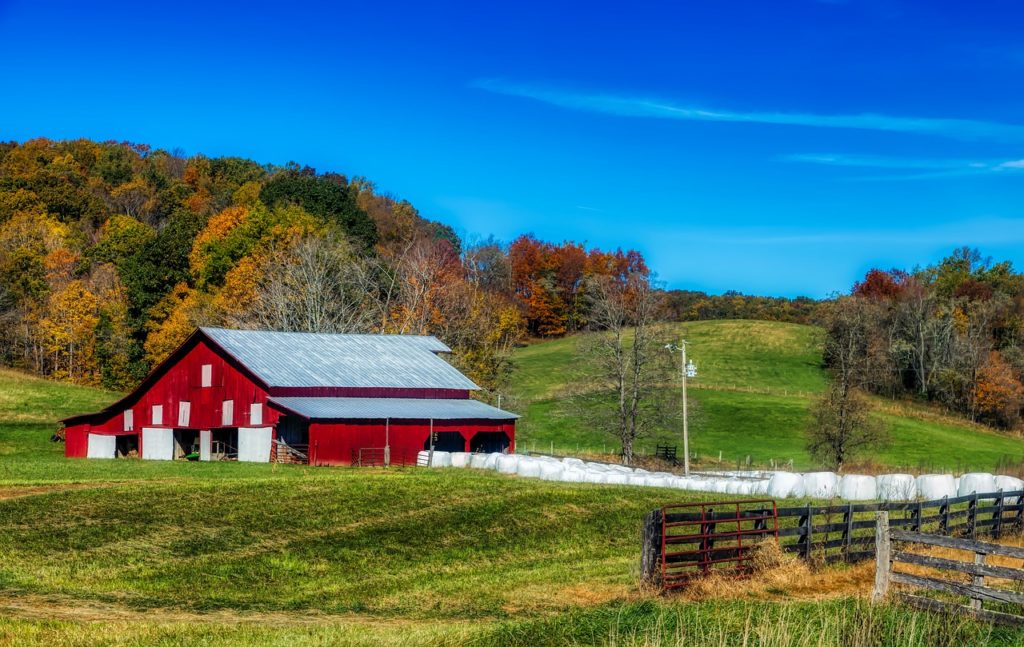
Working farms must register equally a business with the state of Westward Virginia. A person must be at least 18 years of historic period to showtime a business organisation in West Virginia, but the registration fee tin can be waived if y'all are a veteran or a Due west Virginia-resident immature entrepreneur between the ages of 18 to 29.
The W Virginia Agricultural Enhancement Programme administered by the W Virginia Conservation Districts and the W Virginia Conservation Bureau to encourage the voluntary implementation of best management practices on West Virginia agricultural lands in order to conserve and improve state and h2o quality for all Due west Virginia residents. The program offers technical and financial aid to implement such practices as well.
Growing crops in West Virginia
The USDA hardiness zones in Due west Virginia range from 5a at the highest elevation in the east to 7a in the southwest around Charleston. The majority of the state falls in zones 6a and 6b, with average wintertime low temperatures of -10 degrees Fahrenheit.
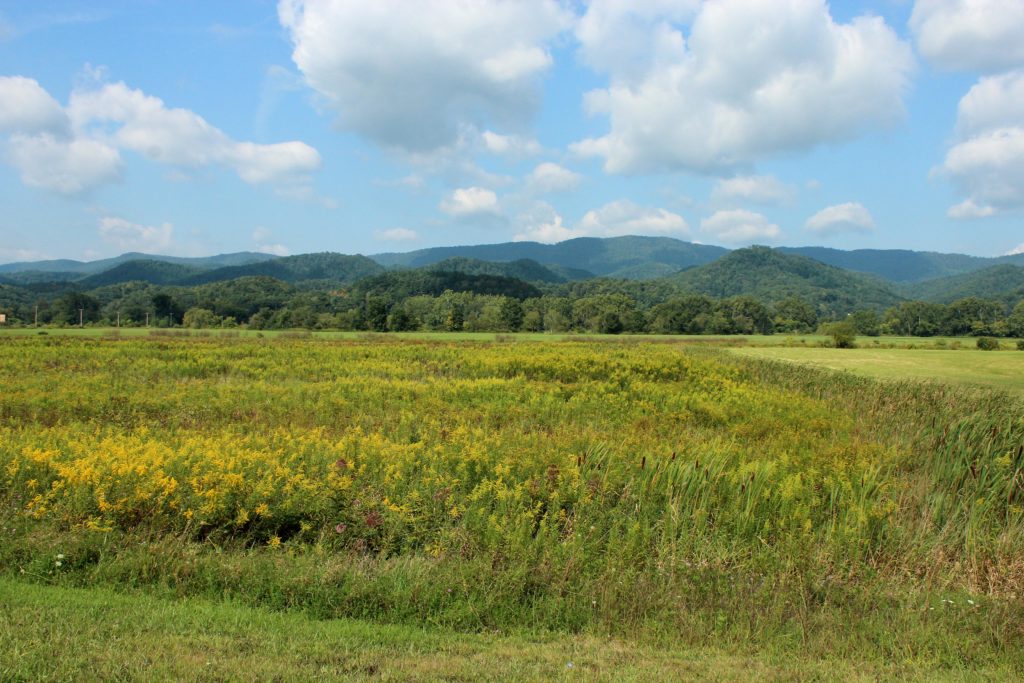
Hay, which is grown to feed the state'due south livestock, is West Virginia'southward main crop. Other major crops include apples (the land is the country'south tenth largest producer of apples), corn, soybeans and tobacco. Peaches and wheat are too grown in the land.
Westward Virginia is known for shallow, acidic clay soil, which is not ideal for growing crops. The soil at high elevations in the Eastern Allegheny and Cumberland Mountains in the eastern and southern parts of the state are particularly rugged and low in fertility.
However, the soil in river floodplains is more fertile, and limestone bedrock helps neutralize soil acidity. Some of the best agricultural soils in Westward Virginia are located along the Ohio River along the northwestern edge. In 1997, West Virginia designated their state soil as Monongahela silt loam, a productive agricultural soil institute on river terraces in on more than 100,000 acres in 45 counties in W Virginia.
Raising animals in W Virginia
West Virginia is a great place to enhance livestock. Most 82 percent of West Virginia's full agricultural production is in livestock products. Broiler chickens are the state's primary agronomical commodity, generating most 31 percent of West Virginia'due south total agricultural receipts. Beef cattle and calves follow, with about 21 percent. Chicken eggs, dairy products, and turkeys are other major livestock products produced past the Land of Due west Virginia.
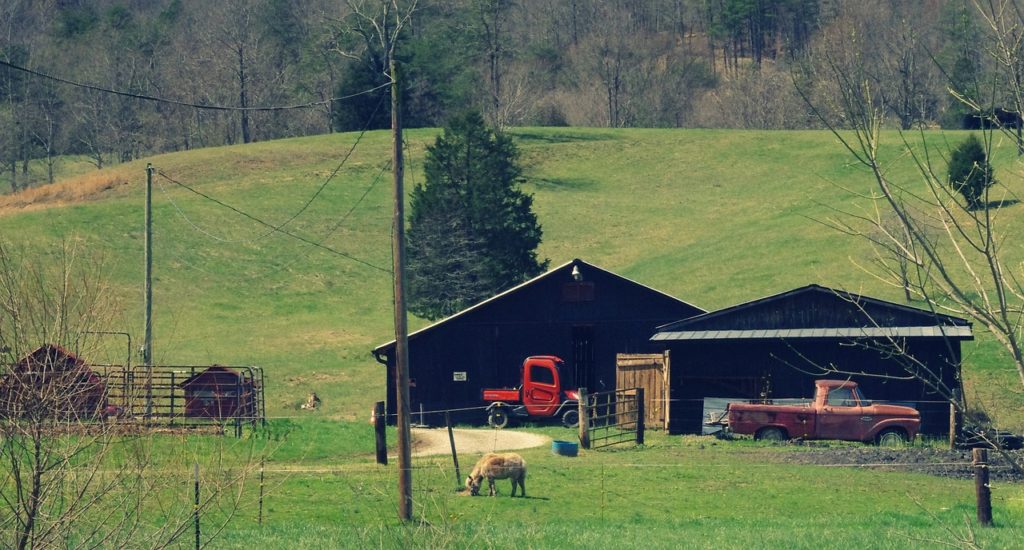
At that place are several weekly livestock auctions that take place throughout West Virginia, including the Jackson County Regional Livestock Market place in Ripley on Mondays and Cattlemen's Livestock Exchange in Caldwell on Fridays.
The West Virginia Livestock Care Standards Board sets forth standards for feeding, watering, exhibiting, handling, transporting and providing adequate ventilation, space, health intendance, and biosecurity for livestock, including beefiness cattle; bison and veal; dairy cattle; equine; modest ruminants; swine; poultry and captive cervids. All complaints regarding the inhumane treatment of livestock are forwarded to the West Virginia Section of Agriculture and the Livestock Care Standards Board from the sheriff, humane officer or canton committee in the county in which the complaint originated.
Livestock owners are responsible for any damages sustained if livestock escape or are negligently permitted to run at large. Anyone who finds livestock running at large may impound the animate being until such damages and costs of keeping take been paid.
Selling food in West Virginia
In that location are 32 markets listed on the Westward Virginia Farmers Market place Directory website.
In Due west Virginia, vendors are exempt from obtaining a farmers marketplace vendor let if they are delivering their products to a consignment farmers market — where the market place takes farmers products and pays them for what sold, returning the residuum to the farmer — or if they are selling fresh, uncut produce.
Once cut, many fruits and vegetables are considered potentially hazardous foods. Cut melons and tomatoes, for case, accept to exist held below 41 degrees Fahrenheit, and so a vendor would have to receive a food establishment permit from the local health section before the date of sale.
Sprouted seeds are not allowed for sale at farmers markets in West Virginia without a nutrient safe programme and a valid nutrient establishment permit. Wild harvested mushrooms are besides not allowed for sale, just several mushroom species can be commercially grown from spores and may be offered for sale at the farmers market. Proof of identity of the species and proof that the mushroom is edible shall exist displayed at the sales surface area.
Sure food products may be sold at farmers markets without a farmers' market vendor permit, including non-potentially hazardous foods like breads, cakes, candies, honey and tree syrup; jams and jellies; dehydrated fruits and vegetables; and condiments. The production and sale of these homemade food items are also exempt from all food licensing, permitting, inspection, packaging, and labeling laws of the state.
The bootleg nutrient items must be sold by the producer to the consumer, whether in person or remotely, or past an agent of the producer or a third-party vendor, such as a retail shop or grocery shop. Homemade food items must likewise be delivered by the producer to the consumer; or by an agent of the producer, a tertiary-political party vendor or a third-party carrier. All online cottage food sales shall be delivered in person and are not permitted to be shipped.
The producer must provide the proper noun of the food item; the ingredients; the statement: "Made in a WV kitchen that is exempt from state licensing and inspection. This product may incorporate allergens," with the blank space to land whether the product was fabricated in a domicile, farm, community, or commercial kitchen; equally well equally the proper noun, home address and phone number of the producer. This information must exist displayed on a placard at the bespeak of sale, vendor website if the food is offered for sale online or a label affixed to the package or container.
A cottage food performance that has a private water supply must have the supply tested prior to permitting and annually thereafter. They also must demonstrate through a written tape of testing for coliform leaner and potability. The section may require more than frequent testing, or additional testing, depending on the circumstances.
Persons engaged in the production of cottage foods for sale at farmers markets shall nourish a health department cottage foods training, ServSafe Food Handler Form offered by the National Eating place Association, a good manufacturing practices certificate program or a state food handlers' licensing program. They must exist able to provide documentation of successful completion of the curriculum.
A small producer may market up to 1 hundred fifty boxes or dozen eggs or less per calendar week of their own production. The producer must register with the Westward Virginia Department of Agronomics. Whatever vendor selling eggs shall have a valid food establishment permit from the local county health section.
Small producers must label their cartons with the proper noun and address of the person producing and selling the eggs; the date the eggs are packed; and the words "Ungraded Eggs" in print of at to the lowest degree v-eighths inch.
All eggs should be washed, transported at 45 degrees Fahrenheit (unless the time for transportation is less than 3 hours), and stored and displayed in cold property equipment at 41 degrees Fahrenheit or less.
Modest producers are permitted to pack in recycled or used cartons as long as the distributor's name, accost, expiration date, size and class are marked out and replaced with the labeling required for small producers. Cartons shall exist clean and free of aroma or debris.
Westward Virginia organizations for new farmers
- West Virginia Offset Farmers
- West Virginia Nutrient and Farm Coalition
- West Virginia Subcontract Agency
- Westward Virginia Farmers Market place Association
- Turnrow Appalachian Subcontract Commonage
- Refresh Appalachia by Coalfield Development
- West Virginia University Extension Service
- W Virginia Country Academy Extension Service
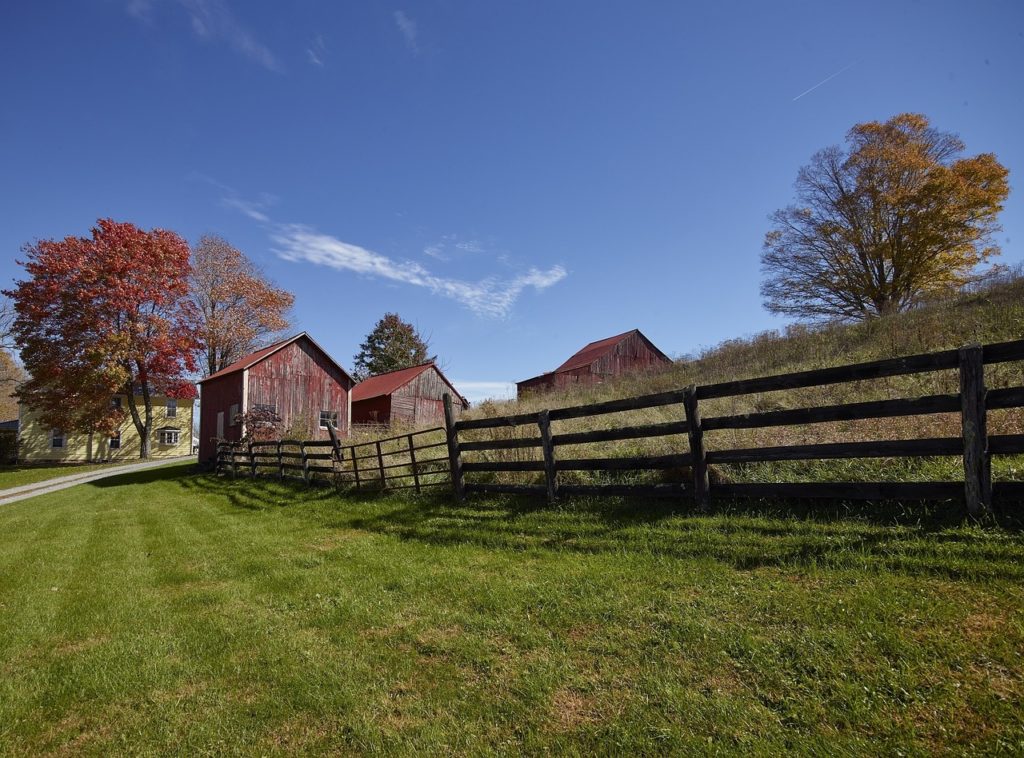
How difficult is information technology to start homesteading in West Virginia?
West Virginia has a rich legacy of rural life and a great environment for pocket-size farms. For farmers and homesteaders looking for affordable options in the mid-Atlantic, specially those looking to focus on livestock, starting a homestead in Westward Virginia is a sensible option.
Source: https://hellohomestead.com/how-to-start-homesteading-in-west-virginia/
0 Response to "Raising Beef Cattle Is West Virginia Laws Per Acre"
Enviar um comentário